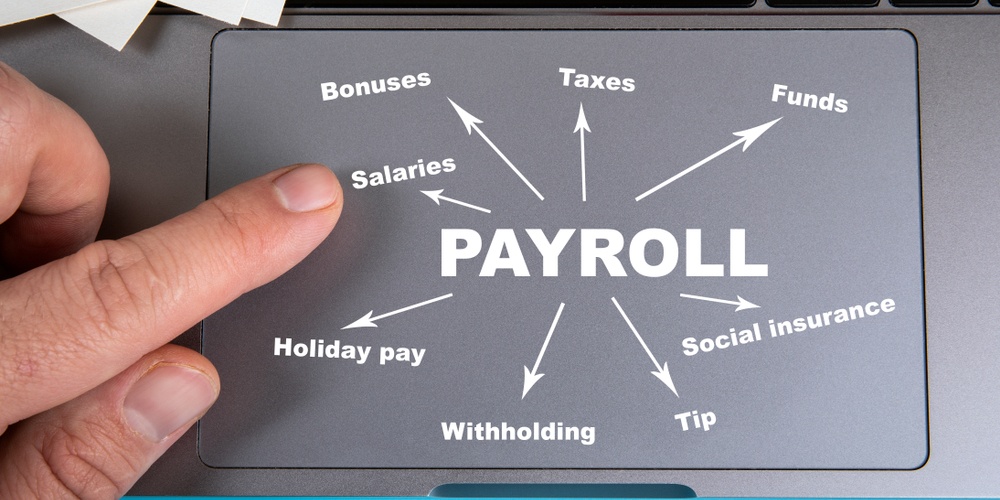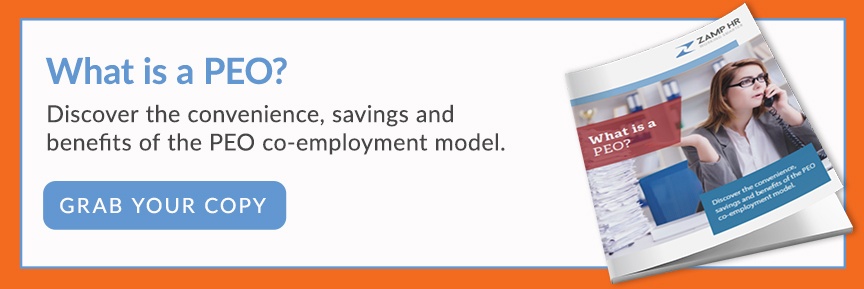When most people think of HR outsourcing, they think of payroll processing. Payroll is the most commonly outsourced segment for a reason; it's tedious, requires little knowledge of your company, and takes a lot of time.
Outsourcing payroll does indeed save a lot of time for your HR staff, however, that is often the only thing it saves. More comprehensive HR outsourcing services tend to have a higher ROI than payroll outsourcing.
So, the best way to get a good ROI is to make payroll outsourcing part of a larger package of outsourced functions. Here are some reasons why just outsourcing payroll is not ideal.
Incomplete HR Compliance
Compliance is one of the biggest burdens HR faces. It consumes a lot of time and requires highly specialized knowledge, especially for multi-state employers. As more and more employers have distributed workforces, more and more companies have to deal with multiple HR regulations.
A dedicated payroll outsourcing service will make sure that you are in compliance with payroll-related laws. Their expertise and enterprise-level software help monitor those requirements and ensure that you remit the correct amount in payroll taxes.
However, there are many other HR laws and regulations to worry about, at local, state, and federal levels. These rules change all of the time, and keeping up with them can be effectively a full-time job.
Comprehensive outsourcing can handle all of your compliance needs. As most companies can't afford a full-time compliance officer, outsourcing becomes much more efficient, as you are paying only for the time you need and getting the same benefits in terms of reduction of risk.
Administrative Burdens Remain
Although payroll is the most obvious tedious administrative burden taking your team's time away from the important things, it is not the only one.
Your HR staff should not be spending their time on necessary administrative work that does not require their deep and detailed knowledge of your company. This includes things like benefits administration, workers comp administration, and unemployment claims management. Comprehensive outsourcing solutions can also assist with smaller, less obvious burdens. These might include providing OSHA posters, having templates available for safety plans and the like, etc. Small things can add up quickly and outsourcing partners often have things already put together that you would have to make or print for yourself.
With these burdens taken off their plate, your team can spend their time on core business needs such as building a better company culture, reducing employee turnover, and providing your employees with the support they deserve. Also, their own morale will be higher as they are able to spend their time on interesting, fun challenges that warrant their training and experience.
It also eliminates the risk of admin work being delegated outside HR onto an office manager, receptionist, or even the owner, ensuring those people are able to do their jobs.
No Cost Savings
Payroll outsourcing by itself gives only time benefits. This only gets worse as your company grows, eventually reaching the point where it is cheaper to simply hire somebody to do payroll in-house.
Payroll processors charge by a percentage of payroll or number of employees. This disincentivizes your company's growth and puts pressure on you to keep payroll costs low, making it harder to provide your employees with appropriate raises and bonuses. The ROI thus becomes worse over time.
More comprehensive outsourcing services will give you much greater cost savings, especially with benefits. These might include lower workers' comp premiums and access to master benefits plans, which have been negotiated at scale. However, only one outsourcing solution gives you an average positive ROI. These are professional employer organizations (PEOs), which can reduce your benefits and workers' comp costs while taking on all of those pesky administrative burdens.
The cost saving of comprehensive HR outsourcing is significant and often exceeds the difference between the cost of that solution and paying just a payroll processor.
Need for Multiple Software Vendors
Your payroll outsourcing company will provide payroll software, and often better than you could afford on your own. However, that is all their software does.
As two different companies are handling things, you still need software to manage benefits enrollment and administration, time and attendance, and other functions. You will need to purchase this software separately, often at a higher cost.
In addition to being an extra bill to worry about, this means there will be no direct integration between payroll and, say, time and attendance. Any time data has to be imported, exported, or, worse, retyped, there is an increased chance of errors that can result in compliance issues, annoyed employees, or expensive banking errors.
With a comprehensive HR outsourcing system, you can get access to a fully integrated human resources information system (HRIS) that covers all of your relevant HR needs, combining them as modules into a single program. This will also tend to be a cheaper option, as it will be included in your overall invoice from the PEO.
Outsourced Payroll Is Just the Start
Outsourcing payroll is not necessarily a bad thing. But it should be the start of your HR outsourcing journey, not the end.
Partnering with a PEO solves all of the above issues, and often for a cost not much more than a dedicated payroll processor will charge. With a PEO you can access benefits savings, "borrow" their compliance officer, use their comprehensive HR software (often something you could not afford), and much, much more.
If you want to reduce administrative burdens and costs, the only option with an average positive ROI is a PEO.



